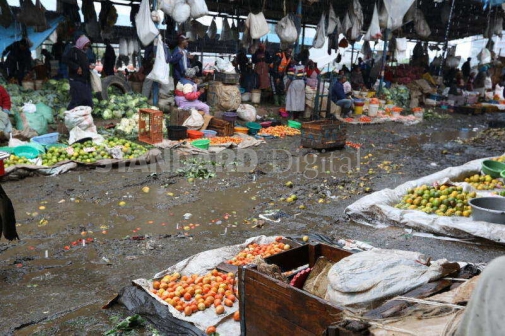
Every day at dawn, 26-year-old Wycliffe Mwangi leaves his home in Kwambira, Limuru, Kiambu County, and catches a bus to Nairobi city centre. He then walks a short distance to Wakulima Market, the largest market for fresh produce in Nairobi, which feeds more than half of the city’s population.
By 8am, Mwangi will have bought more than 100 watermelons and a box full of beetroots. He then sets up in front of Wakulima House, a huge county-owned facility, whose exterior oozes a stomach-churning stench. The pavements around are characterised by dirty water and layers of solid waste that squishes uncomfortably under the shoes.